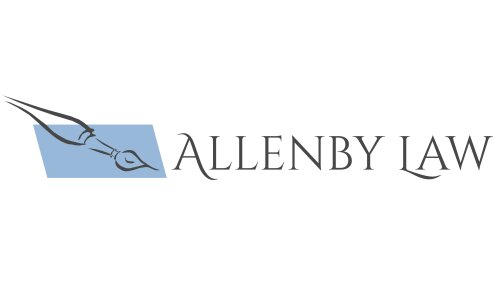Best Renewable & Alternative Energy Lawyers in Fort McMurray
Share your needs with us, get contacted by law firms.
Free. Takes 2 min.
List of the best lawyers in Fort McMurray, Canada
About Renewable & Alternative Energy Law in Fort McMurray, Canada
Fort McMurray, located in Alberta, is well known for its energy sector, particularly for oil sands development. However, with increasing focus on environmental stewardship, the community and region are seeing growing interest in renewable and alternative energy sources such as solar, wind, biomass, and hydroelectric power. Renewable & Alternative Energy Law in Fort McMurray consists of the framework, regulations, and incentives that govern the production, distribution, and usage of energy derived from sources other than fossil fuels. The aim is to balance energy needs with environmental protection, economic development, and community well-being.
Why You May Need a Lawyer
Dealing with renewable and alternative energy projects, whether for personal, commercial, or municipal purposes, often involves complex regulatory, contractual, and environmental issues. You may need a lawyer in circumstances such as:
- Securing permits and approvals for renewable energy installations.
- Understanding environmental assessment requirements for new projects.
- Negotiating power purchase agreements or contracts with utilities and other entities.
- Dealing with land use, zoning, and property rights for installing energy equipment.
- Addressing compliance with provincial and federal laws and regulations.
- Managing disputes related to energy output, land access, or funding contributions.
- Pursuing grants, tax incentives, or other forms of government support.
- Protecting intellectual property in new energy technologies.
- Assisting with transitions from traditional to alternative energy sources for businesses or developments.
Local Laws Overview
Fort McMurray is governed by municipal bylaws, Alberta provincial regulations, and federal Canadian laws concerning renewable and alternative energy. Key legal considerations include:
- Municipal Zoning and Permitting: The Regional Municipality of Wood Buffalo, which includes Fort McMurray, has bylaws regulating where and how renewable energy systems can be installed (such as solar panels, wind turbines, or biomass facilities). These local bylaws set out noise limits, setback requirements, and permit processes.
- Provincial Legislation: The Alberta Utilities Commission (AUC) oversees much of the province's energy infrastructure, including small and large-scale renewable projects. Alberta's Micro-Generation Regulation encourages small-scale energy generation for personal or community use but has specific technical and safety compliance requirements.
- Environmental Impact: Projects that may significantly affect the environment require assessments under Alberta's Environmental Protection and Enhancement Act and sometimes under federal law if they affect waterways or endangered species.
- Incentive Programs: Both Alberta and the federal government periodically offer grants, tax credits, and incentive programs to encourage the adoption of renewable energy technologies.
- Grid Connection: Legal protocols with local utilities such as ATCO or FortisAlberta must be followed for connecting renewable systems to the existing power grid.
Frequently Asked Questions
What types of renewable energy projects are common in Fort McMurray?
Solar, wind, and biomass energy projects are increasingly being considered, alongside energy efficiency upgrades for homes and businesses. Community-scale solar installations and small wind turbines are growing in popularity.
Do I need permits to install solar panels on my home or business?
Yes. You need to follow local building and electrical codes and secure necessary permits from the Regional Municipality of Wood Buffalo. Approval from your utility provider may also be required for grid-connected systems.
Are there incentives for switching to renewable energy in Fort McMurray?
There are periodic provincial and federal incentives, rebates, or grants for renewable energy installations. These programs change over time, so it is advisable to check with government agencies or consult a lawyer for current details.
Can I sell excess solar or wind power back to the grid?
Yes, through Alberta's Micro-Generation Regulation, eligible property owners can sell excess electricity generated from renewable sources back to the grid, subject to approval and metering requirements.
What environmental regulations apply to renewable energy projects?
Projects must comply with Alberta’s Environmental Protection and Enhancement Act, which may require an environmental assessment, especially for larger projects, or those near sensitive ecosystems.
What is required to start a community renewable energy project?
You will need to navigate land use approvals, grid connection agreements, business or non-profit registration, and potentially environmental assessments. Legal guidance can help ensure compliance and secure funding.
Who governs renewable energy regulations in Fort McMurray?
Local regulations are set by the Regional Municipality of Wood Buffalo. Provincial oversight is provided by the Alberta Utilities Commission and Alberta Environment and Parks. Some federal laws may also apply.
Are wind turbines allowed within city limits?
This depends on municipal zoning bylaws and land use designations. Setback, noise, and height restrictions typically apply, and permits are required before installation.
How do I resolve a dispute with my neighbor regarding a renewable energy project?
Legal support is advisable. Disputes may be resolved through negotiation, mediation, or legal action depending on the nature of the disagreement and applicable bylaws.
Can businesses receive funding for renewable energy retrofits?
Businesses may qualify for various government or utility-run funding programs to support energy retrofits, but terms and availability vary. A lawyer can help navigate these opportunities and prepare required documentation.
Additional Resources
If you are seeking information, guidance, or support regarding renewable and alternative energy in Fort McMurray, consider the following resources:
- Regional Municipality of Wood Buffalo - Planning and Development Services
- Alberta Utilities Commission (AUC)
- Alberta Energy Regulator
- Energy Efficiency Alberta
- Natural Resources Canada (NRCan) - Renewable Energy Programs
- Alberta Environment and Protected Areas
- Environmental Law Centre (Alberta)
- Canadian Solar Industries Association (CanSIA)
Next Steps
If you are considering a renewable or alternative energy project or have encountered legal issues in Fort McMurray, it is important to take the following actions:
- Clearly define your project goals and gather relevant information about your property or business.
- Research current municipal, provincial, and federal regulations that may affect your plans.
- Consult official government sources or industry organizations for the most up-to-date information on incentives and requirements.
- Contact a local lawyer who specializes in renewable and alternative energy law. They can provide tailored advice, ensure you remain compliant, and assist with applications, permits, contracts, or dispute resolution.
- Maintain documentation of all communications and permits for future reference or in case of disputes.
Taking these steps will help ensure your renewable energy project in Fort McMurray progresses smoothly and lawfully, allowing you to contribute to a more sustainable energy future.
Lawzana helps you find the best lawyers and law firms in Fort McMurray through a curated and pre-screened list of qualified legal professionals. Our platform offers rankings and detailed profiles of attorneys and law firms, allowing you to compare based on practice areas, including Renewable & Alternative Energy, experience, and client feedback.
Each profile includes a description of the firm's areas of practice, client reviews, team members and partners, year of establishment, spoken languages, office locations, contact information, social media presence, and any published articles or resources. Most firms on our platform speak English and are experienced in both local and international legal matters.
Get a quote from top-rated law firms in Fort McMurray, Canada — quickly, securely, and without unnecessary hassle.
Disclaimer:
The information provided on this page is for general informational purposes only and does not constitute legal advice. While we strive to ensure the accuracy and relevance of the content, legal information may change over time, and interpretations of the law can vary. You should always consult with a qualified legal professional for advice specific to your situation.
We disclaim all liability for actions taken or not taken based on the content of this page. If you believe any information is incorrect or outdated, please contact us, and we will review and update it where appropriate.









